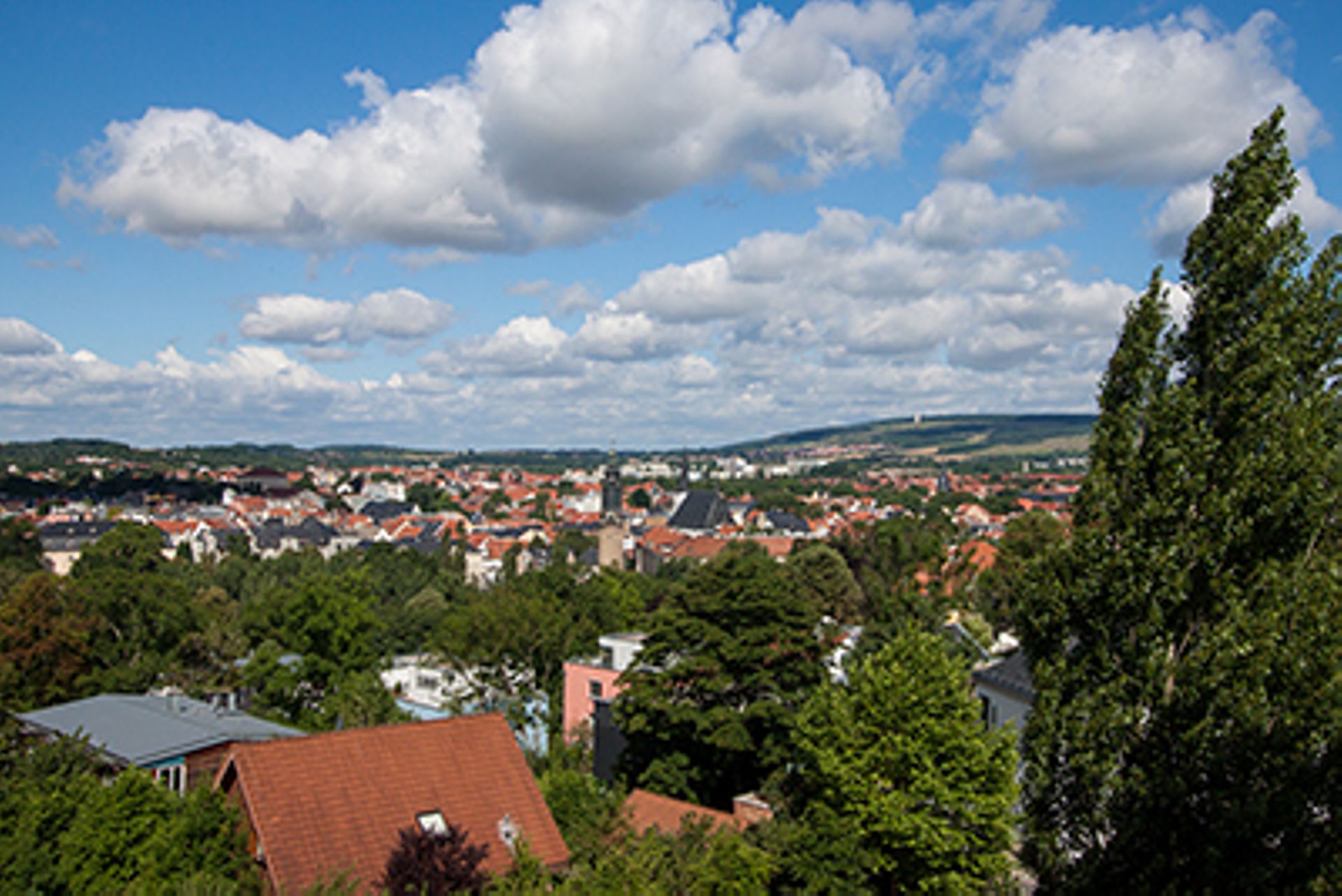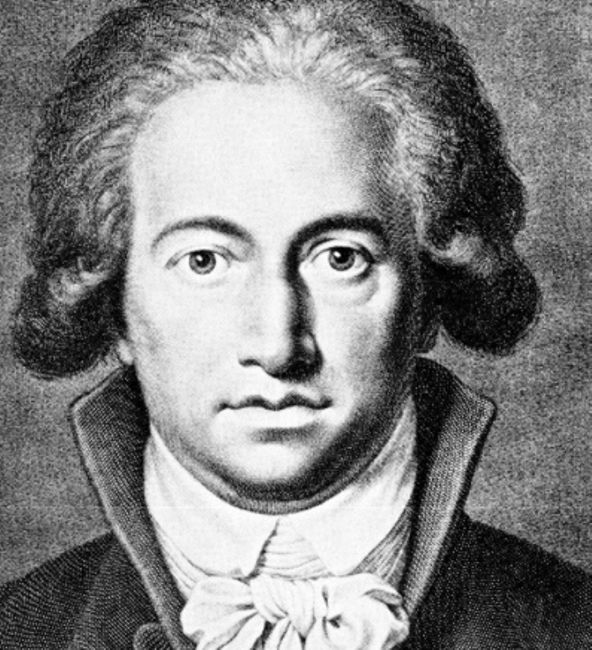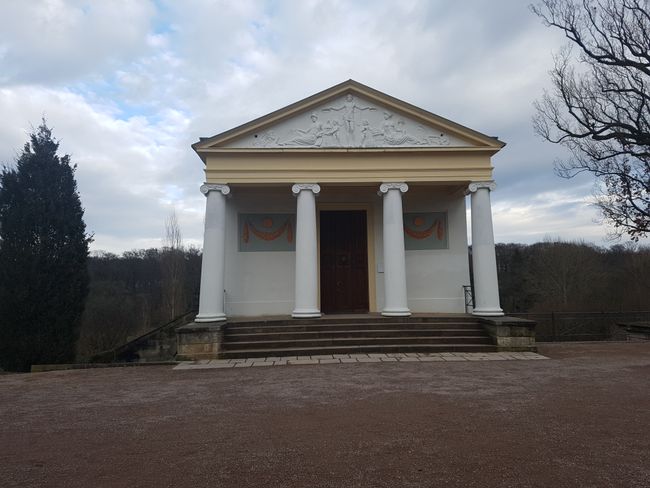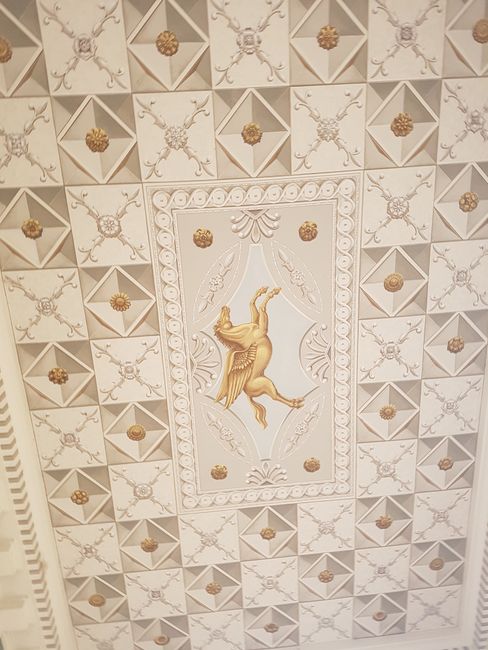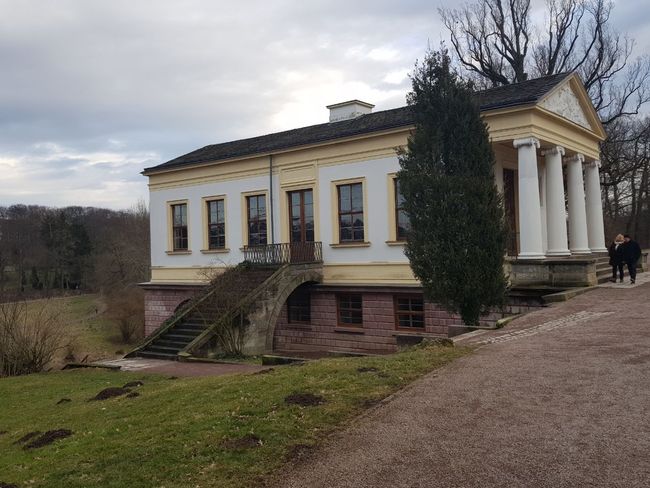1.1 Roman House
ئېلان قىلىندى: 07.03.2018
گېزىتلەرگە مۇشتەرى بولۇڭ
Hello from Weimar!
Our visit to the Roman House was not as successful as expected. Unfortunately, we couldn't visit the exhibition as the house is closed during winter. We got an impression from the outside and took a short break behind the Roman House, with a beautiful view of the landscape. While we were sitting there, we discussed our thoughts on 'Faust I'. Eventually, the topic of antiquity came up, maybe due to the surroundings. We also noticed a connection there. The first thing that caught our attention were the odd words. On the first page, there was the term '[...]Aeolian harp[...]' (Faust I, p. 1 l. 28), after researching for a while, we understood what the word has to do with antiquity and especially with Greek mythology. Because the word was named after the ruler of the winds, 'Aeolus'. In this context, the 'Aeolian harp' means wind harp, the instrument produces sound by the wind. From this, we concluded that Goethe tries to personalize his emotions in an object to illustrate his feelings to the readers. He thus connects his emotions with antiquity, in this case, the world of gods, which clearly indicates Goethe's fascination. He also refers to the legend of Prometheus with the sentence 'Der, wie ein Geier, dir am Leben frisst' (Faust I, p. 44, l. 1636), who is considered the mentor of humans. He also teaches them fire and is subsequently punished by Zeus. Prometheus had to be chained on the Caucasus and endure every day as a piece of his liver is eaten by an eagle. With this statement, Mephistopheles illustrates that Faust can also suffer punishment and ultimately death. The word '[...]Medusa[...]' (Faust I, p. 118, l. 4194) describes the Medusa from Greek mythology, who petrifies people with her gaze. This illustrates the prevailing danger that awaits Faust. However, the reference to antiquity is best highlighted in the scene 'The Witch's Kitchen'. There, Faust sees Helene, also called the beautiful Helena, in the mirror and desires her at first sight. With the words 'Bald Helenen in jedem Weibe' (Faust I, p. 72, l. 2604), Mephistopheles lures him with passion so that Faust is in his hands. In Faust, Helene embodies the divine image of a woman. But this beauty brings not only joy and passion but also sorrow and despair, as the legend of her shows. Goethe's fascination with antiquity is not obvious, but if you look closely and pay attention to the small hidden hints, you can clearly see it. For him, the connection between the divine, nature, and humans was what made antiquity so interesting and special. The nature and architecture of the Roman House were so overwhelming that we had to delve deeper into this topic. Through this initial impression, we can understand very well what fascinated and occupied Goethe about it.
Through this realization, it also became clear to us that antiquity had a much greater influence on Goethe and thus on Faust than the first impression suggests.
We are quite exhausted from the first day, but we are of course looking forward to tomorrow. After all, there is a lot to discover.
Good night, you'll hear from us :).
گېزىتلەرگە مۇشتەرى بولۇڭ
جاۋاب
